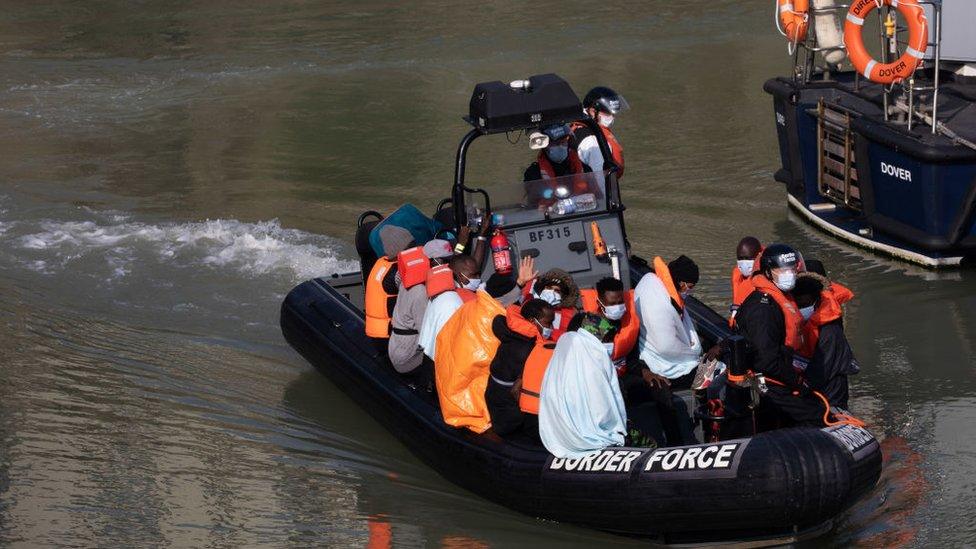English Channel migrants 'being detained in unfit conditions'
- Published
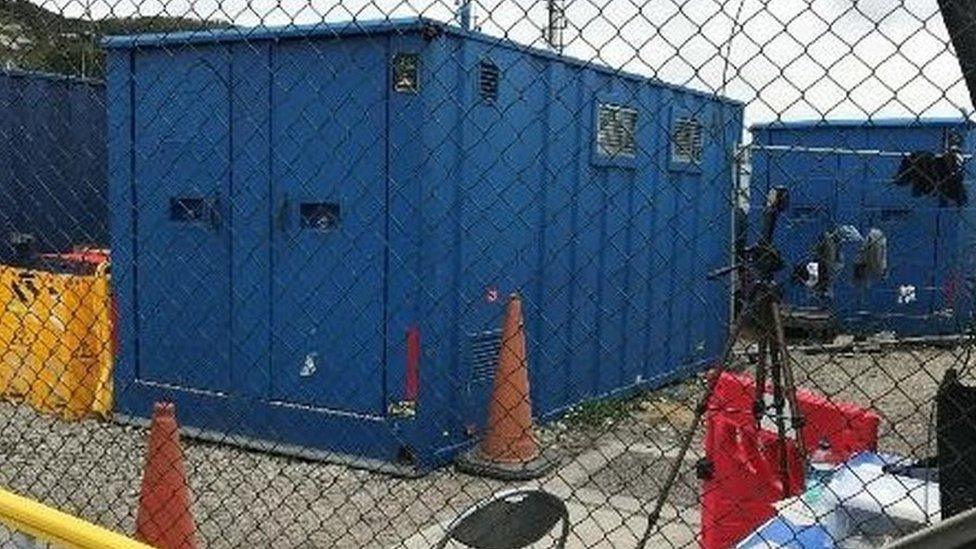
Facilities where migrants have been detained include containers where it is not possible to socially distance
The Home Office did not prepare for a predictable rise in English Channel migrant crossings, leaving men, women and children detained in unfit conditions, the prisons watchdog says.
Chief Inspector of Prisons Peter Clarke said migrants were often held in what looked like an unsafe building site.
Facilities included containers where it was not possible to socially distance.
The Home Office said it has since improved facilities and the way it deals with arrivals.
So far, some 7,444 migrants have crossed in boats during 2020 - the third annual jump in arrivals.
When the numbers began to rise in 2018, Sajid Javid, the then home secretary, described it as a "major incident".
Migrants are generally taken to two facilities in Dover before being transferred to other units or released on immigration bail.
While these facilities are not jails, the prisons watchdog has the power to inspect them because they are used to detain people.
One of the facilities, Tug Haven, received 2,500 migrants between June and August - but Mr Clarke said the facilities were completely unsuitable.
The detainees entered a fenced compound with a loose rubble base.
Once inside, there were a number of gazebos and three containers with chemical toilets - but no means to socially distance and reduce the risk of the spread of coronavirus.
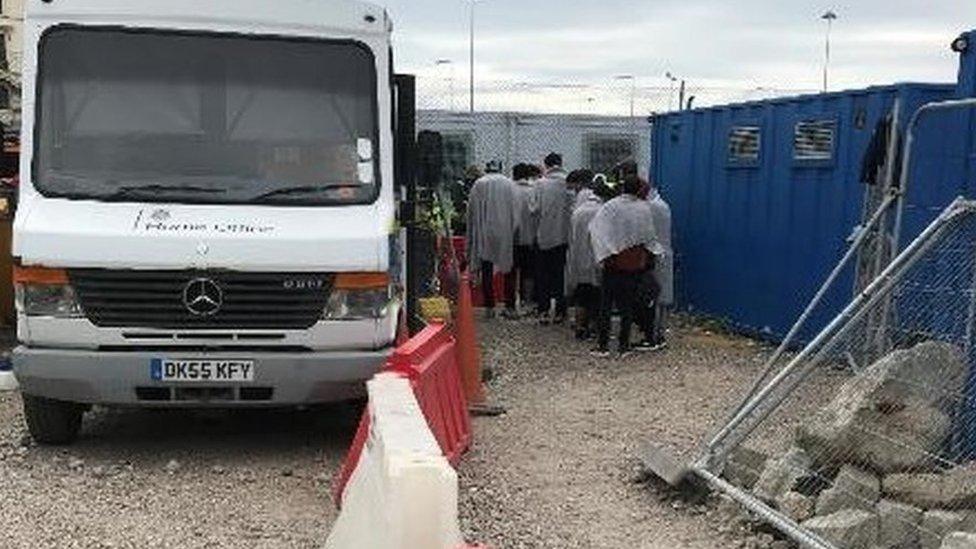
The facilities at Tug Haven were described as "completely unsuitable" by the prisons watchdog
The migrants - mostly from Iran, Iraq, Sudan, Syria and Eritrea - tended to be wet and cold but during the inspection, the facility ran out of both dry clothes and mugs for hot drinks.
The detainees - 200 of whom arrived on one day - then spent hours in the open air or in the container units.
Despite the conditions, the detainees were positive about the way they were treated by the staff.
"We met detainees who had been extremely traumatised after their long journeys, and their positive feedback on the decency shown to them by many individual staff cannot be underestimated," said Mr Clarke.
"However, the detention facilities in Dover were very poorly equipped to meet their purpose and important processes had broken down.
"It is hard to understand this failure to prepare properly for what must have been a predictable increase in migrant numbers.
"Just because numbers are unprecedented, that does not mean they are unpredictable or cannot be planned for."
The Home Office said it has made improvements to Tug Haven since the inspection.
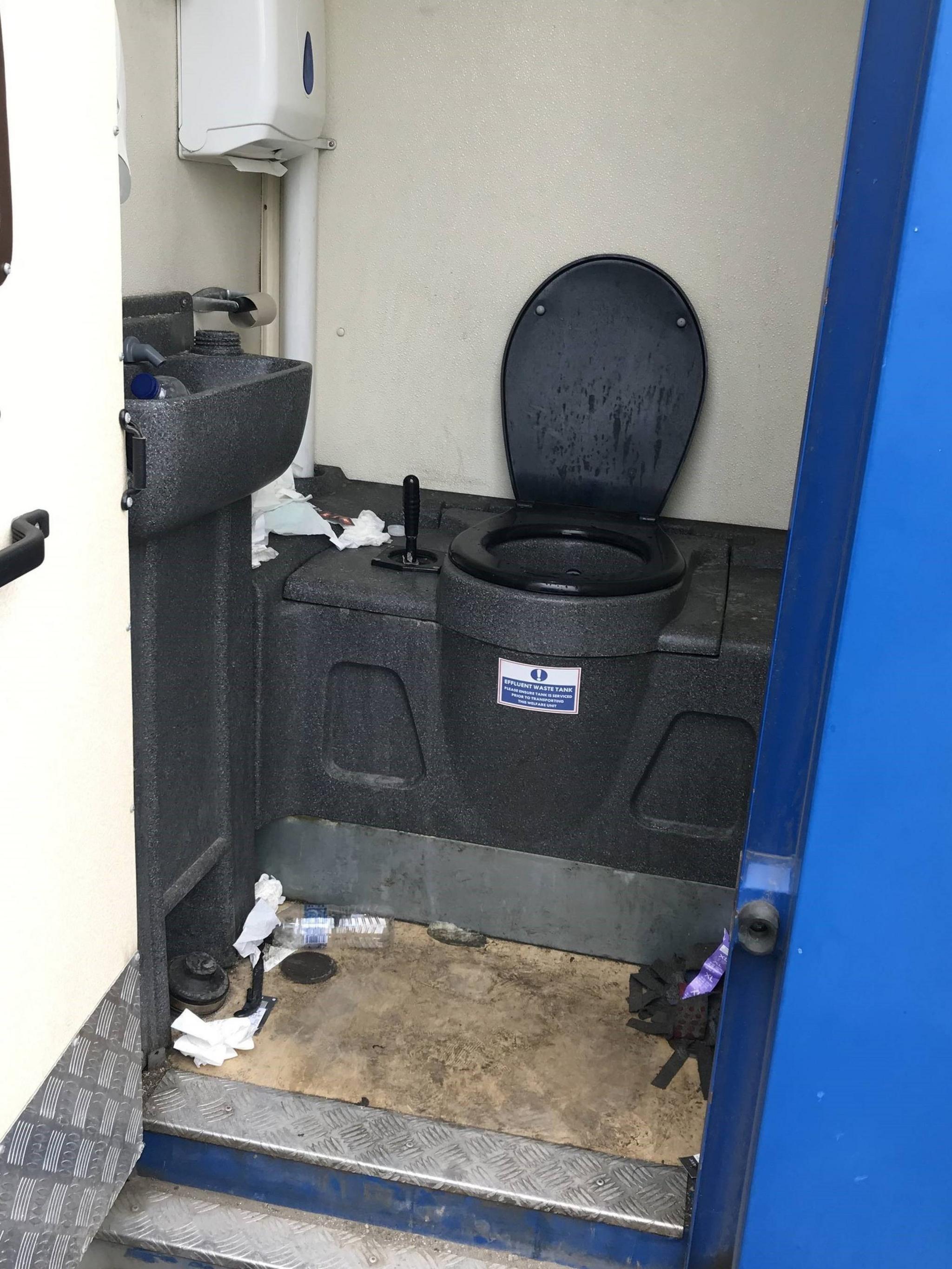
A dirty toilet at the Dover container
The nearby Kent Intake Unit - a larger facility - had better facilities, said the report.
But it was also not suitable for detaining the migrants for long periods - not least because social distancing was not possible.
The inspectors said measures to protect children were weak.
More than 70 unaccompanied children had been held in the unit in the three months to August, but often they had to wait a long time for an assessment because Kent County Council's social services was overloaded.
One 12-year-old boy and his 18-year-old brother were told to go to a London hotel but records did not show whether the local social services were aware of the pair's arrival.
The Home Office said it took the welfare of people in its care "extremely seriously" and ensured its facilities were "decent and humane".
"These crossings are dangerous, illegally-facilitated and unnecessary," the spokesperson added. "We are committed to fixing the asylum system, to make it fairer and firmer, compassionate to those who need help and welcoming people through safe and legal routes."
- Published4 October 2020
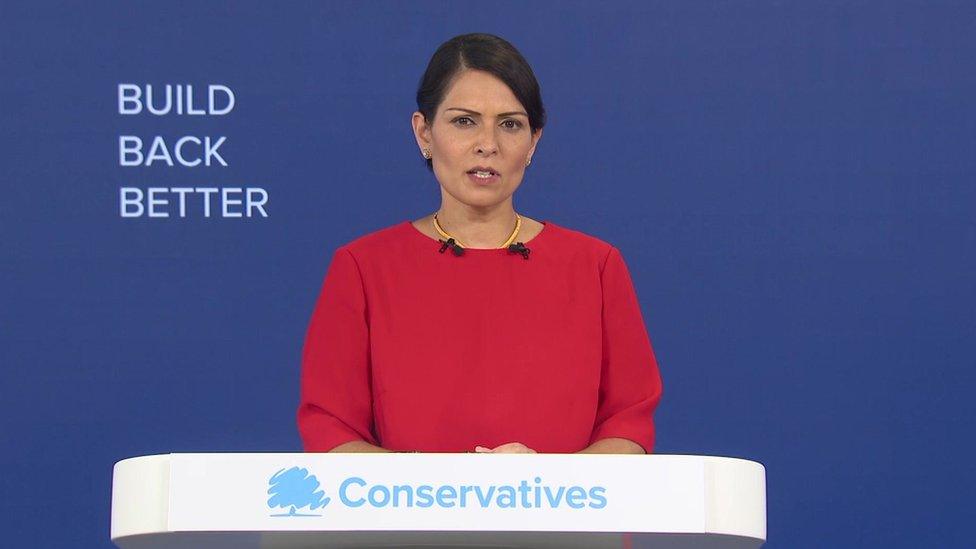
- Published18 October 2020
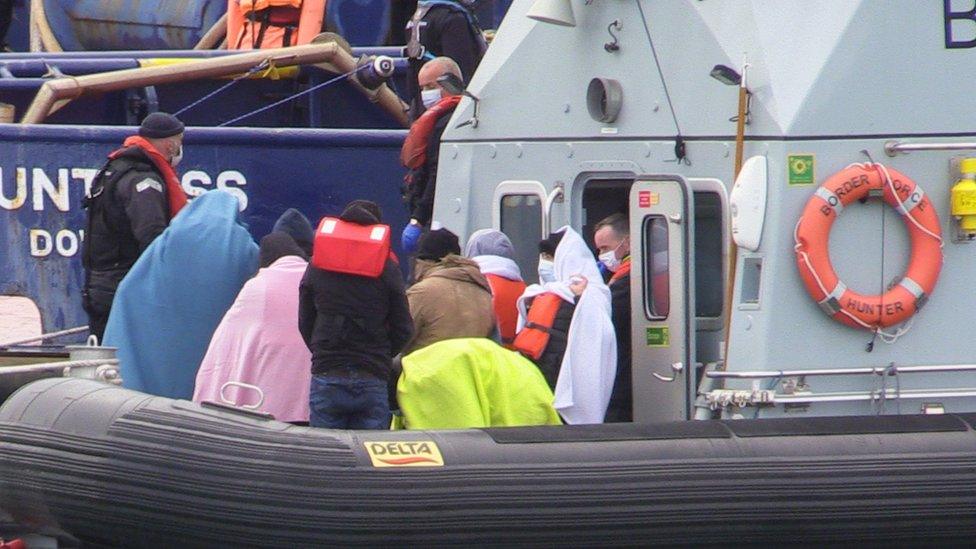
- Published11 October 2020
